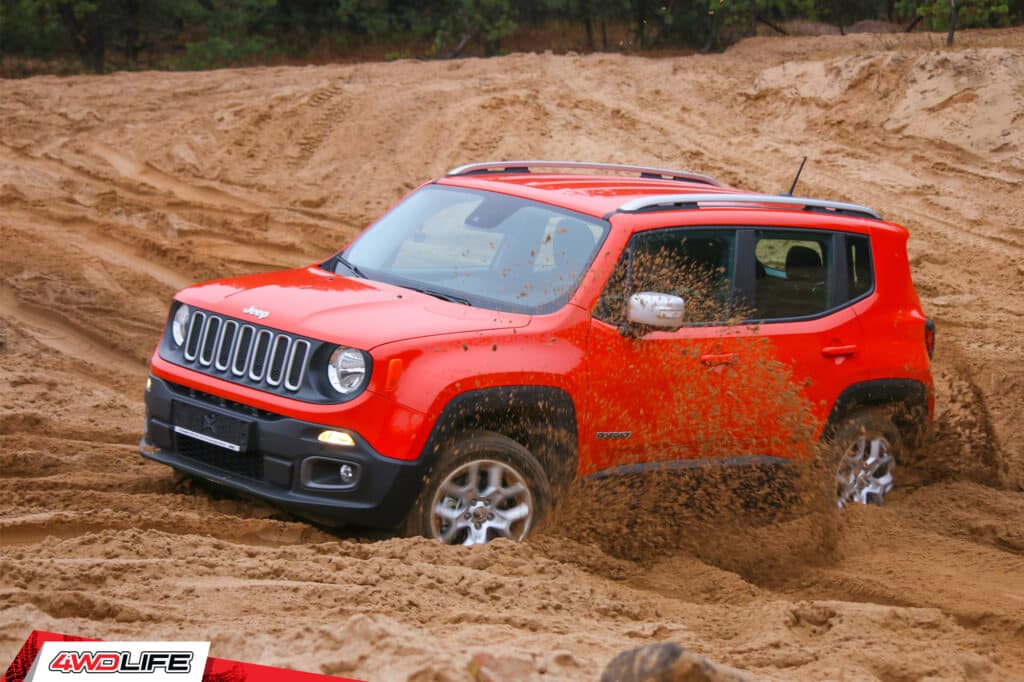
The reliability of the Renegade is something that drivers have come to expect from the brand. With a reputation for being tough and durable, Jeep vehicles are expected to last long.
Unfortunately for the Renegade, it was introduced in 2014 when Fiat Chrysler managed the brand. It shared parts and components with other Fiat Chrysler brands like Fiat and Alfa Romeo, both of which aren’t known to be highly reliable marquees.
Most vehicles are expected to be problem-free within their warranty periods. This goes true for the Renegade. Like any other vehicle on the road, Jeep Renegades will eventually need some maintenance and repairs. And there’s always a chance that a faulty unit will roll out from the factory.
We’ve already gone over some issues concerning the reliability of the Jeep Renegade, particularly issues concerning specific model years.
Ultimately, vehicle owners want to know how long their Jeep will last. Is the Jeep Renegade reliable? That’s what we’re here to answer. We’ll also discuss how long they typically last on the road.
Jeep Renegade Lifespan
![Jeep Renegade engine]](https://4wdlife.com/wp-content/uploads/2022/10/5-3-1024x682.jpg)
When it comes to Jeep Renegade reliability, there is good news. According to aggregated consumer reports, the Jeep Renegade has above-average reliability. This means that you can expect your new Jeep Renegade to last longer than most other cars on the road.
Warranty
Standard: Jeep offers a 3-year/36,000 mile warranty for Renegades. This means that if any manufacturer defects spring up with your vehicle during that time, Jeep will cover the repairs.
Rust: The Renegade has a 3- to 5-year/no mile limit warranty for rust protection. As such, if any significant rusting appears on your Renegade during that time period, Jeep will repair or replace the affected parts.
Accessories: You get a 1-year/12,000 mile warranty for accessories. It’s always best to get your Jeep Renegade accessories from the dealer so that you’re covered in case anything goes wrong. Though oftentimes, this means having to pay a higher price for accessories.
Major Components
Jeep Renegades are known for their ruggedness and off-road capability. But how long do they last? Let’s take a look at the expected life spans of the major components:
Engine: The engine is expected to last between 100,000 and 150,000 miles, although some Renegade owners have reported getting more than 200,000 miles out of them.
Transmission: The transmission should last around 100,000 miles. Some vehicle owners have reported issues with the transmission around 80,000 miles, while others have had no problems whatsoever. Your driving habits will often dictate how long the transmission lasts. That said, the Renegade is known for having transmission problems, so it’s something to keep an eye on.
Suspensions: The suspensions should last around 75,000 miles. So overall, Jeep Renegades are known for having pretty good lifespans.
Will a Jeep Renegade Last 200,000 Miles?
Although the Jeep Renegade is expected to last a maximum of 150,000 miles, there have been reports of the vehicle lasting much longer. In fact, some drivers have even reported their Jeep Renegade lasting over 200,000 miles. Still, it’s important to remember that this isn’t guaranteed.
Will a Jeep Renegade Last 300,000 Miles?
There have been far fewer reports of the Jeep Renegade lasting 300,000 miles. In fact, it is more likely that the vehicle will only last for around 100,000 miles. This is due to the fact that Jeeps do have some reliability issues in certain components, particularly with their engines and transmissions.
Maintenance to Extend Jeep Renegade Lifespan

Even the best cars require regular upkeep. And the best way to ensure a long lifespan for your Jeep Renegade is to perform routine maintenance and take good care of it.
That means regular oil changes, tune-ups, and keeping an eye on things like tire pressure and fluid levels. If you do all of that, your Jeep Renegade should be able to last for many years.
Preventive Maintenance Service Intervals
Let’s look at each specific component of the Jeep Renegade and what you can do to prolong its lifespan:
Oil Change: The engine is the heart of your Jeep Renegade, and keeping it well-lubricated is vital to its longevity. That’s why regular oil changes are so important. Depending on how often you drive and the conditions you typically encounter, you should change your oil every 3,000 to 5,000 miles.
Tune Up: A tune-up is a chance to check all of the systems in your Jeep Renegade and make sure they’re running properly. This includes things like the spark plugs, air filters, and belts. Getting a tune-up every 30,000 to 50,000 miles is a good way to keep your Jeep Renegade in top shape.
Fluid Changes: Your Jeep Renegade has a number of different fluids that need to be regularly changed, including the coolant, transmission fluid, and power steering fluid. These should be changed according to your Jeep Renegade’s owner’s manual.
Major Components that Need Replacement
After putting some miles on your Jeep Renegade, there are a few major components that will need to be replaced. These include:
Battery: You can expect to get 3-5 years out of a Jeep Renegade battery with proper maintenance.
Brake Pads: Brake pads will typically need to be replaced every 50,000 miles.
Filters and Pumps: The fuel filter and water pump are two components that will need to be replaced around the 100,000-mile mark.
Timing Belt: The timing belt is usually expected to last 100,000, but it should be replaced every 60,000 to 80,000 miles to prevent engine damage.
These are just a few of the major components that will need to be replaced on your Jeep Renegade after a few years. With proper maintenance, you can expect your Jeep to last for many years to come.
Jeep Renegade Common Problems

Jeep Renegades are a popular choice for those looking for an affordable, reliable, and stylish crossover SUV. However, like all vehicles, common Jeep Renegade problems do tend to pop up as these vehicles age. Some of the most major or popular ones include:
Suspension Problems: The suspension is known to be one of its weaker points in some Renegade model years. Over time, the shocks and struts can wear out, causing a rougher ride. Additionally, the Renegade’s suspension is known to be particularly vulnerable to potholes and other road hazards, so it’s important to be aware of this if you’re driving one.
Electrical Issues: Another common issue with the Renegade is electrical problems. These can manifest in a number of different ways, from driver assistance problems to the check engine light. It’s important to have these sorts of issues addressed as soon as possible, as they can often be indicative of bigger problems down the line.
Excessive Oil Use: One issue that tends to come up with Jeep models of the Renegade is excessive oil consumption. This can be caused by a number of different factors, but it’s important to keep an eye on your oil level and get it checked regularly to avoid any potential problems.
So far, there have been recalls for various model year Jeep Renegades. The vast majority appear to be significant concerns, such as transmission, airbags, welding problems, and engine issues.
A Worthy Vehicle with Some Issues
The Jeep Renegade is a capable and reliable vehicle that is built to last. Even better, it has a very strong highway safety rating. However, it does have some issues that can cause problems down the road. Make sure to have your Jeep Renegade serviced regularly to avoid any major issues.
While the Renegade is known for having its share of problems, there are just as many people who swear by its reliability. Jeep Renegades have been known to last for about a hundred thousands miles with proper care and maintenance.
So if you’re looking for a reliable and durable vehicle, the Jeep Renegade is a decent choice. Just make sure to keep up with regular maintenance, and you’ll likely enjoy many years of trouble-free driving.
